WMG News
WMG appoints new Honorary Associate Professor
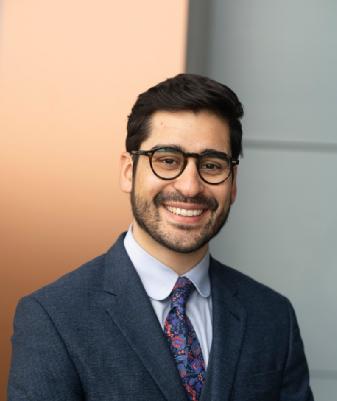 Dr Ahmad Mohsseni, Chief Technology Officer at UKBIC, has been made an Honorary Associate Professor at WMG.
Dr Ahmad Mohsseni, Chief Technology Officer at UKBIC, has been made an Honorary Associate Professor at WMG.
Dr Ahmad Mohsseni joined UKBIC in April 2019, where he sits on the executive committee - the team responsible for delivering and operating the Centre. Dr Mohsseni is responsible for Engineering and Quality specifically.
Prior to this Dr Mohsseni was team leader, project manager and research associate at RWTH Aachen University, and a management consultant at McKinsey and Company. He holds Bachelor and two Master of Science degrees from RWTH Aachen University in Economics, Manufacturing Engineering, and Mechanical Engineering, as well as a PhD in engineering.
Professor David Greenwood, Director for industrial Engagement at WMG comments: “I am delighted for us to deepen the research relationship between UKBIC and WMG through the appointment of Dr Ahmad Mohsseni as Honorary Associate Professor. Ahmad, as CTO of UKBIC has worked closely with the research team at WMG in the fields of battery electrochemistry and battery manufacturing, and his scientific and technical knowledge will contribute greatly to our joint research agenda in the future.”
Jeff Pratt, UKBIC’s Managing Director, said: “I’m delighted with Ahmad’s appointment as Honorary Associate Professor at WMG, at the University of Warwick. This appointment, alongside his role as Chief Technology Officer at UKBIC, recognises Ahmad’s valuable contribution to the development of UKBIC, a facility created to support UK industry with development of battery technologies for future electrification. He will be a great asset to the University.”
In his role as Honorary Associate Professor, Dr Mohsseni will share his expertise by giving seminars and contributing to joint research with WMG staff.
WMG Professor helps shape House of Lords Select Committee report
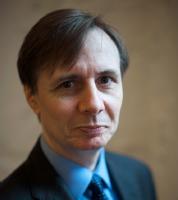 Professor Tim Watson, Director of WMG’s Cyber Security Centre, has shared his expertise in the House of Lords Select Committee on Risk Assessment and Risk Planning report entitled ‘Preparing for Extreme Risks: Building a Resilient Society.’
Professor Tim Watson, Director of WMG’s Cyber Security Centre, has shared his expertise in the House of Lords Select Committee on Risk Assessment and Risk Planning report entitled ‘Preparing for Extreme Risks: Building a Resilient Society.’
Professor Watson gave evidence to the panel which was used to shape the report published on Friday 3rd December.
The Committee was appointed in October 2020 to "consider risk assessment and risk planning in the context of disruptive national hazards". Following 29 oral evidence sessions with 85 witnesses and 90 written submissions, the Committee concluded that the UK must be better at anticipating, preparing for and responding to a range of challenging risk scenarios, including those which it has never experienced before.
The report emphasises that the Government's current strategy of centralised and opaque risk assessment and risk management, which fails to make adequate preparations, has left the UK vulnerable.
The Chair of the Committee, Lord Arbuthnot, said: "Our inquiry has concluded that the UK must adopt a whole of society approach to resilience, one which emphasises the important role played by all sections of society in preparing for, adapting to and recovering from the effects of risk. Risk and resilience are not solely the concern of central Government policymakers, and since they have the capacity to alter the lives of everyone in the country, everyone needs to be involved in shaping the response to the risks that we face."
Read the report in full here: https://publications.parliament.uk/pa/ld5802/ldselect/ldrisk/110/11002.htm
WMG research shortlisted for key industry tech award
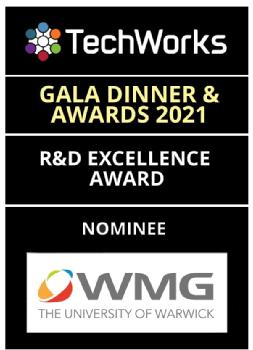 WMG’s Secure Cyber Systems Research Group has been shortlisted for a TechWorks R&D Excellence Award.
WMG’s Secure Cyber Systems Research Group has been shortlisted for a TechWorks R&D Excellence Award.
The R&D Excellence Award celebrates innovative R&D activity involving strong Industry and Academic collaboration. This category showcases world-class technology development that has the very high potential of being adopted by industry.
Professor Carsten Maple explained: “I am extremely grateful to all of the team for their huge effort and fantastic outputs. I am so pleased that their efforts have been recognised by a national awards panel.
“The awards recognise outstanding collaboration, and we have certainly made our case based upon the many successful projects, including BeARCAT, IoT-Tram, Capri and S-CAV, that we have delivered with multinational partners and SMEs.
“Being recognised as a finalist is a fantastic achievement and testimony to the hard work of everyone here at WMG.”
Winners will be announced at the TechWorks Gala Dinner and Awards Ceremony on Thursday 9th December, at the Leonardo Royal Hotel London St Paul’s.
Read more about WMG’s cyber security research here: Cyber Security (warwick.ac.uk)
TechWoman100 award for WMG researcher
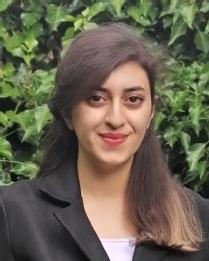 WMG Senior Research Fellow, Dr Mona Faraji-Niri, has been announced as a winner of a prestigious 2021 TechWoman100 award.
WMG Senior Research Fellow, Dr Mona Faraji-Niri, has been announced as a winner of a prestigious 2021 TechWoman100 award.
Dr Faraji-Niri started her career at Iran University of Science and Technology, and then continued as a lecturer at Pooyesh Institute of Higher Education, before joining WMG in 2018.
Dr Faraji-Niri is currently based in WMG’s Energy Innovation Centre specialising in battery modelling, battery management algorithms, electric vehicle powertrain modelling and control, and machine learning algorithms.
Dr Faraji-Niri explains: “It is an honour to be included in such a fantastic list! We need women at all levels to reshape the tech world. There’s no longer a mindset of ‘I can’t because I am a woman,’ all is possible by recognising and embracing your uniqueness, and having the passion and love for what you do.”
The TechWomen100 awards are the first of their kind to focus solely on the female tech talent pipeline and to also recognise the impact of champions, companies and networks that are leading the way for future generations of tech talent. Highlighting the achievements of these women is part of the WeAreTechWomen’s campaign to shine a spotlight on 1,000 future female leaders in technology by 2025.
See the full list of 2021 TechWoman winners here: TechWomen100 Awards | Winners 2020 (wearetechwomen.com)
WMG staff recognised by Ventilator Challenge UK
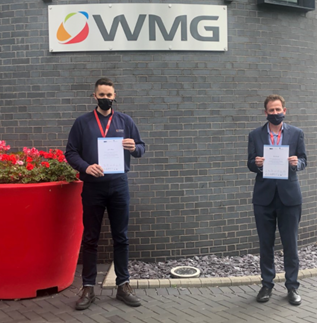 A group of WMG staff have been presented with personalised certificates of appreciation from the Ventilator Challenge UK in recognition of their hard work during the Covid19 pandemic.
A group of WMG staff have been presented with personalised certificates of appreciation from the Ventilator Challenge UK in recognition of their hard work during the Covid19 pandemic.
In summer 2020, WMG was part of a consortium that helped to produce a total of 13,437 Penlon ESO 2 and Smiths paraPAC ventilator devices for the NHS.
WMG staff operated a quality control facility in an automotive parts warehouse in Solihull with colleagues from other High Value Manufacturing Catapult centres - the National Composites Centre (NCC) and the Manufacturing Technology Centre (MTC). Together they worked around the clock tirelessly inspecting over eight million parts.
Dr Mark Swift, Head of WMG SME Group, said: “It’s once again great to see WMG involved in such a nationally important project. The team have done a fantastic job of showcasing our continuous ability to collaborate and support business. This recognition is well deserved and is a testament to our capabilities.”
The 12 strong team included Dave Cooper, Paul Charlton, Ricky Nestor, Lee Oldham, Divyesh Mistry, Max Raybone, Joe Ward, Luke Millage, Myles Vale, Simon Fox, Steve Leemoon and Mark Swift.
Read more about the WMG SME Group here: WMG SME Group | How can we help you? (warwick.ac.uk)
WMG Professor shares expertise in key parliamentary report
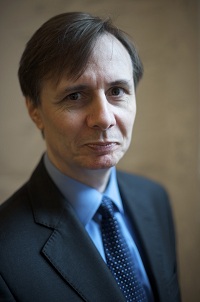 Professor Tim Watson, Director of WMG’s Cyber Security Centre, has shared his expertise in a key parliamentary POSTnote focusing on Smart Cities.
Professor Tim Watson, Director of WMG’s Cyber Security Centre, has shared his expertise in a key parliamentary POSTnote focusing on Smart Cities.
A POSTnote helps members of the House of Commons and the House of Lords, and UK parliament staff navigate complex topics and research in science, technology and social sciences.
This POSTnote looks at smart city innovation in the UK and technologies involved. It considers the factors driving adoption of smart city technologies, and the potential benefits, barriers and risks associated with their implementation.
Professor Tim Watson explains: “Smart cities use data and digital technology to make better decisions and improve the quality of life of people in the community. Local councils and governments can get more comprehensive, real-time data to understand how demand patterns are changing. This data can then be analysed to help with better decision making.”
Throughout the UK cities are, using this data, adopting strategies to boost their economy following the pandemic, allowing them to ‘build back better.’
Read more about Smart Cities here: https://post.parliament.uk/research-briefings/post-pn-0656/
Metal forming to be cleaner and greener thanks to UKRI fellowship
§ Dr Ed Brambley at the University of Warwick has been awarded a UKRI Future Leaders Fellowship to investigate how mathematics might make metal forming cleaner and greener
§ There is an industrial need for smarter metal forming to create new products, reduce scrap, compensate for more variable materials (e.g. recycled metals), reduce costs, and reduce energy usage. The project partners with Tata Steel and Primetals Technologies for industrial guidance and impact.
§ Smarter metal forming requires precise computer control, and the computer controller needs a theoretical model to predict what would happen if it were to make a change. These theoretical models are what is currently missing.
§ Dr Bramley will investigate using techniques from mathematical modelling of continuum solid mechanics and plasticity to produce theoretical models that are fast enough and accurate enough for real-time computer control of various industrial metal forming processes.
The future of smart metal forming will be investigated by Dr Ed Brambley at the University of Warwick thanks to his award of a UKRI Future Leaders Fellowship. The fellowship enables him to perform blue-skies research in mathematical modelling in continuum solid mechanics and plasticity, the outcome of which could be used to provide predictive theoretical models to make industrial metal forming greener and cleaner.
Dr Ed Brambley is an Associate Professor at the University of Warwick, at both the Maths and WMG departments. He is one of 97 scientists in the UK to receive a UKRI Future Leaders Fellowship in the 5th round, and over the next four years he will perform blue-skies research to investigate new mathematical modelling techniques that can make industrial metal forming cleaner and greener, thanks to £780k funding from UKRI and £230k funding from the University of Warwick.
Metal forming is the shaping of metal; examples from manufacturing include rolling metal to create thin sheets and stamping flat sheets of metal to form car body panels. There is currently an industrial need for smarter metal forming in order to create new products, to reduce scrap, to compensate for more variable materials (e.g. recycled metals), to reduce costs, and to reduce energy usage.
body panels. There is currently an industrial need for smarter metal forming in order to create new products, to reduce scrap, to compensate for more variable materials (e.g. recycled metals), to reduce costs, and to reduce energy usage.
With current 21st century technology most people would expect computer-controlled metal forming processes, which would monitor the metal work piece during the forming process and adapt the process to correct any problems to obtain the desired end result.
However, the computer controller needs a theoretical model to predict what would happen if it were to make a change, in order to find the right changes to make, and such theoretical models are currently unavailable; and computer simulations are too slow for use in real-time.
The current state of the art is to use computer finite element simulations during process development or to diagnose problems, and then to use simple controllers (such as PID controllers) to blindly follow the pre-prescribed forming procedure.
New modelling techniques could give a substantial improvement, hence why Dr Ed Brambley will investigate techniques from mathematical modelling of continuum solid mechanics and plasticity, the outcome of which could be used to provide predictive theoretical models for industrial metal forming.
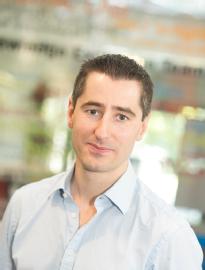 Dr Ed Brambley, from the University of Warwick, comments:
Dr Ed Brambley, from the University of Warwick, comments:
“Unlike existing computer simulations which work in all situations but are slow, my aim here is to take advantage of properties of particular metal forming processes, such as symmetry, or small parameters such as thin sheets, small deformations, and so on, and create bespoke simplified models specific to each of these processes.
“By accounting for these properties in a rigorous way, and using best practice mathematical techniques, I could produce quick-to-compute models with a guaranteeable accuracy. Such models would be exactly what is needed for online control of the metal forming process, and in the long term could create new products, reduce scrap, compensate for more variable materials such as recycled metals, reduce costs, and reduce energy usage.”
Not only will the funding help Dr Brambley’s research, it will also be used to support a post-doctoral researcher, and several PhD students from existing Warwick CDT’s will be involved in the research. Meaning Dr Brambley will be training a new generation of mathematicians and engineers to use these new mathematical modelling skills in industry.
ENDS
15 OCTOBER 2021
NOTES TO EDITORS
High-res images available at:
https://warwick.ac.uk/services/communications/medialibrary/images/september_2021/ring_rolling.jpg
Caption: Ring rolling metal forming
Credit: Hammerwerk Erft
https://warwick.ac.uk/services/communications/medialibrary/images/september_2021/ed_brambley.jpg
Caption: Dr Ed Brambley, WMG/Maths University of Warwick
Credit: WMG, University of Warwick
For further information please contact:
Alice Scott
Media Relations Manager – Science
University of Warwick
Tel: +44 (0) 7920 531 221
E-mail: alice.j.scott@warwick.ac.uk
WMG experts to present at key EV battery conference
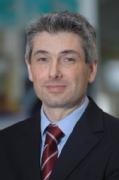 WMG’s Professor James Marco, Dr Ben Silverstone and Dr Anwar Sattar will be sharing their expertise at the IMechE’s International EV Batteries 2021: Cost-Effective Engineering for Hybrid and Electric Vehicles next month.
WMG’s Professor James Marco, Dr Ben Silverstone and Dr Anwar Sattar will be sharing their expertise at the IMechE’s International EV Batteries 2021: Cost-Effective Engineering for Hybrid and Electric Vehicles next month.
The two-day event which takes place on 9-10 November at Kia Oval, London, explores the latest developments in battery design, testing, thermal management, charging and integration right across the lifecycle of the battery with the aim of creating more resilient and cost-effective systems.
On day one, Professor James Marco, WMG’s energy storage expert will present ‘Smart battery development for improved EV safety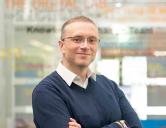 characterisation,’ and Ben Silverstone, WMG’s UK Electrification Skills Framework Programme Lead, will explain more about the 'National Battery Skills Framework: Collaborating to Elevate UK Industry.’
characterisation,’ and Ben Silverstone, WMG’s UK Electrification Skills Framework Programme Lead, will explain more about the 'National Battery Skills Framework: Collaborating to Elevate UK Industry.’
On the final day, Lead Engineer in Battery Recycling, Anwar Sattar will be presenting ‘Establishing a lithium-ion battery recycling industry in the UK,’ discussing types of waste material found along the supply chain, recycling processes required to deal with material streams, and explaining more about the RECOVAS research project.
Find out more about the conference and book your place here: International EV Batteries 2021: Cost-Effective Engineering for Hybrid and Electric Vehicles | London | CMP7333 (imeche.org)
WMG Professor joins Clean Growth Leadership Network
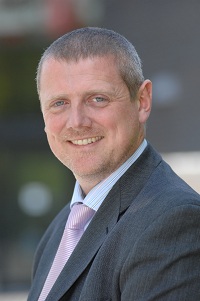 Head of WMG’s Sustainable Materials and Manufacturing Research Group, Professor Kerry Kirwan, has been appointed as a Fellow to the Clean Growth Leadership Network (CGLN).
Head of WMG’s Sustainable Materials and Manufacturing Research Group, Professor Kerry Kirwan, has been appointed as a Fellow to the Clean Growth Leadership Network (CGLN).
The CGLN is committed to economic growth for all whilst substantially reducing carbon emissions. The world-class network is made up of Founders, Fellows, Partners and Members united in their commitment to transform to a global clean economy.
Professor Kirwan explains: “I am delighted to have been appointed as a Fellow of the Clean Growth Leadership Network – the opportunity to work with some of the UK’s leading thinkers and practitioners tackling critical issues on the climate change agenda is hugely exciting. I’m really looking forward to introducing them to our research here at WMG and the wider University.”
Professor Kirwan is a specialist in circular economy, sustainable materials, polymer processing and industrial applications. He has extensive experience of developing environmentally friendly materials for application within numerous industries.
Read more about WMG’s Sustainable Materials and Manufacturing research here: Sustainable materials and manufacturing (warwick.ac.uk)
Five WMG researchers to become Turing Fellows this academic year
Five members of staff from WMG have been named as Fellows of the Alan Turing Institute this year.
Turing Fellows are scholars with proven research excellence in data science, artificial intelligence (AI) or a related field, whose research will be significantly enhanced through active involvement with the Turing network of universities and partners.
The Alan Turing Institute is the UK’s national institute for data science and AI, aims to attract and retain exceptional researchers in artificial intelligence and the University of Warwick is a founding partner.
Covering a broad view of AI, including applications of foundational disciplines across mathematical sciences, statistical sciences, computational sciences and engineering, Fellows work together across disciplines and have the opportunity to collaborate with academia, industry, government and the third sector.
In total 37 researchers from the University of Warwick, from across the fields of mathematics, life sciences, statistics, computer science, business, medicine and engineering, have been named as Fellows of the Alan Turing Institute this year.
Pro Vice Chancellor for Research at the University of Warwick, Professor Caroline Meyer, said: “I am delighted that so many Warwick researchers have been named as Fellows of the Alan Turing Institute this year. It shows Warwick’s strength and breadth when it comes to working at the forefront of data science and AI.
“There is a diverse range of expertise in this cohort ranging from epidemiology and disease to the disciplines of pure mathematics and computational sciences. Data Science is one of the key research priorities for the University of Warwick and our people continue to drive research through collaborative work with institutions like Turing.”
The five WMG fellows of the Alan Turing Institute are:
Associate Professor Michael Auinger
Professor Mehrdad Dianati
Assistant Professor Truong Quang Dinh
Professor Carsten Maple
The Alan Turing Institute Director and Chief Executive, Adrian Smith, said: “It gives me great pleasure to welcome this new group of Fellows. This cohort is incredibly multidisciplinary and diverse. They will bring a rich range of expertise and ensure we continue to do world-leading, impactful research.”
The full list of Warwick’s Turing fellows and details of their research can be found here: https://warwick.ac.uk/research/turing/fellows
-ends-
Notes for editors:
The Alan Turing Institute is the UK’s national institute for data science and artificial intelligence.
The Institute is named in honour of Alan Turing, whose pioneering work in theoretical and applied mathematics, engineering and computing is considered to have laid the foundations for modern-day data science and artificial intelligence. The Institute’s goals are to undertake world-class research in data science and artificial intelligence, apply its research to real-world problems, drive economic impact and societal good, lead the training of a new generation of scientists, and shape the public conversation around data.
Warwick’s Turing Fellows:
The full list of Warwick’s Turing fellows and details of their research can be found here:
https://warwick.ac.uk/research/turing/fellows
For further information please contact:
Alice Scott
Media Relations Manager – Science
University of Warwick
Tel: +44 (0) 2476 574 255 or +44 (0) 7920 531 221
E-mail: alice.j.scott@warwick.ac.uk
